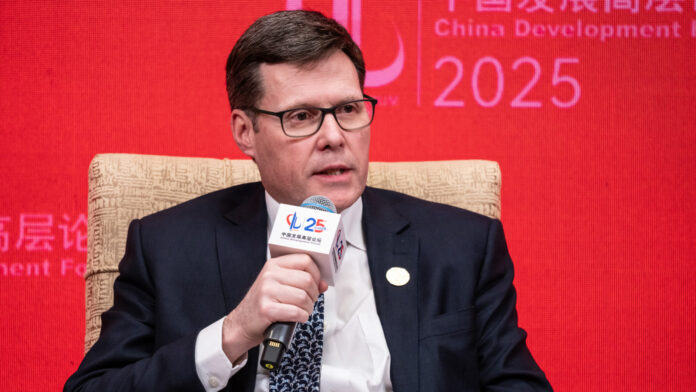
THE combination of Anglo American with Canada’s Teck Corporation was hatched only two months ago as the firms discussed potential asset level cooperation.
Duncan Wanblad, CEO of Anglo said in an interview discussions with his counterpart at Teck, Jonathan Price branched out from synergies between their respective Quellaveco and Quebrada Blanca mines in Peru to broader strategy.
“I think it just became eminently more clear to us that some sort of partnership would result in something that’s much bigger than just that, and that’s how we moved. Really, in the last two months, we’ve put the merger together,” said Wanblad.
Both Anglo and Teck have been the subject of unsolicited takeover attempts (Anglo from BHP in April last year and Teck from Glencore in 2023). Since then, the two have embarked on restructuring that might potentially make them vulnerable, especially in an environment where consolidation might be favoured.
Wanblad said, however, conjoining Anglo with Teck – to form the $50bn Anglo Teck as announced today – in order to protect the firms from hostile takeovers was not the point of the proposed merger. “It would be very hard to end up with something that works just to club up to end up with some scale,” he said.
“If there’s no sense to this deal, then there’s no real point in it at all. In fact, we’ve seen before that big isn’t necessarily better if you’ve got the wrong assets and if you’ve got the wrong balance sheet going forward,” Wanblad said.
“So this particular transaction was absolutely driven by the complementary nature of the two businesses, the synergies within the asset base, the incredible opportunities that exist as a clear copper company of the future. The happy outcome of that is we end up with a really well-financed company going forward.”
The proposed deal appeared to have the support of the Church of England Pensions Fund. Its chief responsible investment manager Adam Matthews said in a post on X the proposed merger would bring together “two of the leading best practice operators”.
Analysts at Berenberg were quoted as said the proposed merger between Anglo and Teck had “interloper risk”. Asked if the deal could be quickly unhinged in the event of a rival offer for one or both of the companies, Wanblad said: “It’s hard to prognosticate on what one might do in the face of other offers”.
Wanblad declined to say who had definitely approached whom in setting up the deal, but it’s interesting that Anglo will move from London, where it has been domiciled since 1999, to Vancouver assuming the deal is approved by shareholders.
Price said it was “unprecedented” for a company of Anglo’s size to move its headquarters to Canada. “It’s a real endorsement for the Canadian mining industry and the opportunities that exist within Canada for global mining companies,” he said.
It might well be fundamental to the success of the deal. Canada has said previously it is against the sale of assets to foreign investors except in the most exceptional of circumstances. While the deal still has to pass muster with the government, it at least has the support of the Keevil family which controls the company through supervoting A class shares.
“The Keevil family, of course, led by Dr. [Norman] Keevil, are very supportive of this transaction because it meets their threshold test – it makes the company better, and that’s something that we’re always very focused on,” said Price.
Shares in Anglo were 9.7% higher in Johannesburg in an apparent vote of confidence in the deal rationale in which Anglo Teck would produce about 1.3 million tons a year of copper, about 70% of its ebitda to which zinc and iron ore production is a contributor.
“This looks like a significant coup for Anglo American and if they are successful is a great move as they’re locking up high-quality copper assets that the industry has been coveting,” Duncan Hay, a mining analyst at Panmure Liberum told Bloomberg News today.
Anglo Teck will also press on with the Woodsmith mineral fertiliser project, in the UK, currently under feasibility. “It remains an incredible option to have within the portfolio,” said Wanblad of Woodsmith.
“Whether it gets sanctioned or not completely remains the same for Anglo Teck as it does for Anglo American. It’s got a bit of time to go before it gets to full feasibility study. We’ve got to syndicate the project,” he said.








